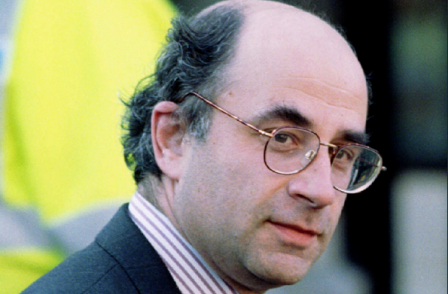
By Chris Oakley, former editor of the Liverpool Echo
Next month Lord Justice Leveson will set out his recommendations for a new regulatory framework for the conduct of the press.
The industry waits with trepidation but I am more optimistic than most – for Lord Justice Leveson, then simply Brian Leveson QC, worked for me on a case that pushed the limits of press freedom when other more eminent QCs refused.
Leveson defended the Liverpool Echo in a contempt of court action brought by the Attorney General.
The case ended with a House of Lords ruling in favour of the newspaper.
Leveson took the case after I refused to accept advice to plead guilty.
I doubt he will have been impressed during the inquiry by the complaints of publicity-hungry celebrities who seek to turn off the media spotlight only when it shines on parts of their lives they would rather remain hidden or by the collective amnesia of politicians, senior journalists and media owners.
Leveson may have been wryly amused that an inquiry set up to deflect attention from politicians and their links with the media instead put those from the Prime Minister down firmly centre stage.
No doubt, in his report, he will deplore law-breaking by journalists and their agents – without, of course, the knowledge of their editors or managements – to secure nothing more than gossip; but he may recall that he defended the Echo for pushing the constraints of the law because its campaign was wholly in the public interest… and the Echo, of course, is not alone.
Newspapers are there to hold those in authority to account and the best journalists are those who want to make a difference – for the better – to the lives of those who do not exercise power or court publicity.
And they do. More often than not, to do so they have to use subterfuge, to pay contacts or to operate at the boundaries of the law.
It was a tip from inside the Home Office that launched the Echo campaign.
New EU-inspired laws had been introduced giving those sent to mental institutions by the courts the right to appeal to a Mental Health Tribunal for release.
Our informant told us that a killer held in a secure Merseyside institution was planning such an appeal.
The Home Office could not intervene directly but was concerned on several grounds.
The killer had an escalating history of crimes against women from his teenage years, culminating in the kidnap and killing of a 15-year-old girl shortly after being released from prison and while supposedly under police supervision.
And in the Home Office view, there was a high risk of him re-offending; at the time, a theory fashionable with a minority of doctors was that psychopaths could be cured and the killer’s application would be supported by some whose opinions might sway the tribunal, the majority of whom would have no specialist knowledge.
We did what any campaigning newspaper would do – we dug out pictures of the killer and ran stories about his increasingly violent crimes against women; we interviewed the mother of the girl he had killed; we examined what had happened after patients with similar histories had been released from other mental institutions; we urged readers to demand that the killer should never be released.
In the face of an outcry on Merseyside, the tribunal decided to reject the application for release.
Then the Attorney General launched proceedings against the Echo and against me as editor for contempt of court.
On a grey and sodden day, I turned up at the One Brick Court Chambers of David Eady QC, now Sir David Eady, who was renowned as the best specialist media lawyer, an unflinching defender of the red-top tabloids and their right to expose the private lives of public figures.
As a High Court judge, Mr Justice Eady appears to have undergone a transformation and has made a reputation for advancing a privacy law at the expense of the media.
On that day, his advice to me was simple – plead guilty, throw myself on the court’s mercy and jail could probably be avoided, although a substantial fine could not.
It was advice I found easy to reject.
Back on Merseyside, I was introduced to Brian Leveson, who believed that Mental Health Tribunals were not courts and therefore not subject to the restrictions of the Contempt of Court Act.
Even if they were, the public interest had been served by the Echo’s campaign.
Leveson won the argument in the Divisional Court, lost at Appeal and won in the Lords.
The case and new applications for release by the killer spanned four years and, by the time of the Lords’ ruling, I had left the Echo.
But Leveson and I did cross paths once after the initial contempt hearing.
He was prosecuting in the Ken Dodd tax evasion trial and told me that he was thinking of making an application to have the trial moved out of Merseyside because of Ken’s popularity.
I advised him not to bother. Ken Dodd had just appeared at a Conservative Party conference, urging people to vote for Mrs Thatcher.
If there is one thing Merseysiders dislike more than paying tax, it is a Conservative in their midst, I said.
Leveson took my advice. George Carman defended and three weeks later Ken Dodd was acquitted. Leveson had lost a case most observers thought he had won.
It did not seem to damage Lord Justice Leveson’s career, however, and I hope it has not left him feeling disgruntled with editors in general.
After all, most of us do ask our reporters where they get their stories from and stay the right side of the law unless the public good is undeniable.
The power of the press is too great to do anything different.
Email pged@pressgazette.co.uk to point out mistakes, provide story tips or send in a letter for publication on our "Letters Page" blog
